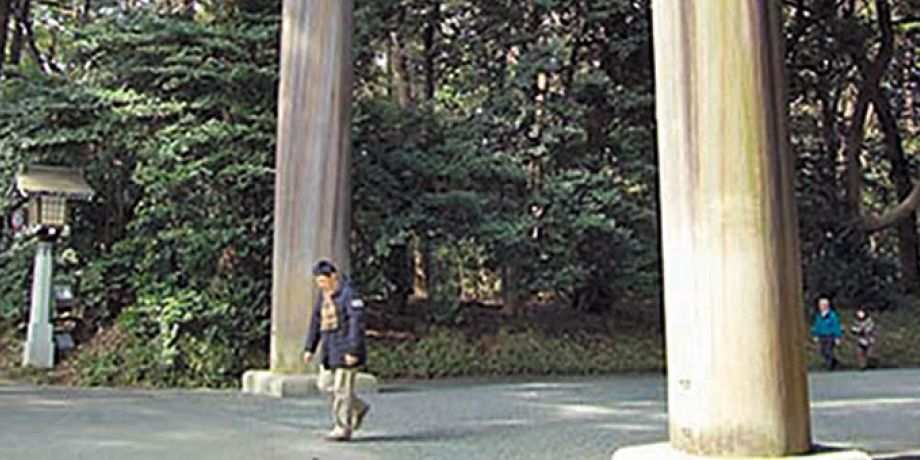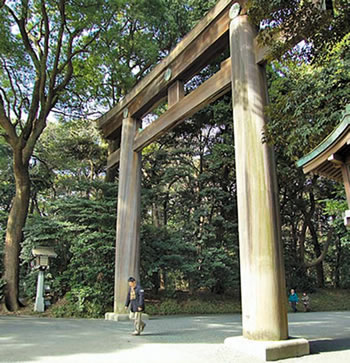
A Columban Lay Missionary in Japan
Genovia, How did you come to be a lay missionary in Japan?
I am from Kwangju in Korea. I had been teaching for a number of years when I heard about the Columban Lay Missionary program and decided to attend some meetings. I was 30 by then and was thinking of a change. When I mentioned the idea to my mother she said, “No, the idea is a good one, but not for you.” The idea stayed with me and some time later I decided that I wanted to take part in the program. I was reassured by the fact that the option could be for as short as a year. That was in 1998. I had a plan to get experience for three years before becoming a Sister.
You opted to go to Japan?
I hoped to go to Latin America so Japan was not my first choice. The Missionary Society of St. Columban decided to send a team to Japan for the first time; that team was our group of five Koreans. Historically there has been a lot of enmity between the countries and many negative attitudes and feelings.
 You are still in Japan, so things must have turned out well for you?
You are still in Japan, so things must have turned out well for you?
Yes, but not at the beginning. Although the countries are not far away from each other I found the Japanese people very different. People were very set in their ways, and they certainly didn't want to talk about the past. I found it hard to know what to do; I find it hard to be in situations where I can do nothing. One of the Columban priests advised me that I needed to give myself a bit more time and luckily I accepted the advice. Later I realized that, above all, learning and understanding is a first step. I'll give an example of a conversation with a Japanese friend.
My friend said, "You are Korean and you know well the history between Japan and Korea and still you are here as a missionary. Frankly, can you love Japanese? And, as you know, some people here don't like Koreans, even in the church."
I got confused at the unexpected question but I said, "Yes, I know. We can't change the past history but we're writing another page of history now. In the future, we'll be seen each country with different memories."
She then asked: "When some people look at you coldly how you do feel?"
"Not good" I said "but I have been told that about 60% of people have not good feelings about you, without reason, when you arrive into a new place."
"Can you like them?" she asked. "Yes, I think it's one of my challenges. I now like Japanese people more than before…"
For a long time now you have been working with the homeless in Tokyo. Generally, people in other countries don't think that there are any problems like that in Japan.
The problem may not be as big as in other cities around the world, but there are homeless people in Tokyo. I started to work there with the brothers of the Missionaries of Charity. When I first visited the area where I work I was afraid. People were badly dressed and often unwashed. Some could be violent and occasionally I saw knives. There was dirt and smells to be coped with also. Today, some of the same people are still there, but I see them differently now.
What is the background of the homeless people?
Obviously, there is poverty but this can come from a family breakup, failure in work or business, disease of mind and body, hopelessness, alcohol and depression. Some of them come from poor families. Some are young and that is worrying because they should have a better life before them. The homeless population changes a good bit from year to year.
What can you do there in the poor area?
Mostly I do very simple things like serving meals. Maybe the most important thing is listening to them. Some do not want to talk about their lives, others do. It takes time and patience before they begin to talk about themselves. I like Mother Teresa's advice. She said "you do not have to do anything great, do a small thing with great love. What you can do I can't do, and what I can do you can't do. But together we can do something for God."
Sometimes people can volunteer but thinking of benefit to themselves. Our presence and existence can be a witness and speak of God's mercy and love.
Is there any particular person you remember?
There was one very big, strong, and violent man. Some of the homeless told me that he had been a member of one of Yakuza criminal gangs. I had seen him physically fighting with others. I used to often ask God to change his heart. One day when we had some clothes to distribute he intimidated the others and took the best clothes for himself. We confronted him and made him return some. We told him the rules here were different. A week later he was back and I greeted him. Usually there was no answer. But this time he said hello. Later he said, "I'm sorry about last week." I was touched because it's not easy to accept one's own mistakes.
Did the "conversion" last?
Yes. He began to look for small part-time jobs. Now he is a good and willing helper any time we need him. He even smiles at the people. When I see the change in him now I think of the hymn, "How Great Thou Art."
What are the "little things" that make a difference for you?
Every Saturday we make about 400 rice curry lunch boxes and deliver them. The people are always waiting in line in the park along the river. One day I thought that it's not enough just to hand over a warm lunch box; can I do anything for those dark and gloomy faces? Maybe a smile would give a bit of energy for the day. I summed up the courage to bow to each person in the line. For nearly three months I got very little response, but after six months nearly everybody started talking to me. Through our practice and patience we can be witnesses to God's love. Now people come to me and start the conversations. Sometimes all you can do is offer a smile, but it can make all the difference.
You came to Japan for three years and you are still here. Why?
It was not part of my original plan, but I am here now. For now I give thanks for God's tender love and care for me and for the experience of being in God's hands. I don't know about the future. I'll probably remain here as His instrument until the day that God points me in a new direction. I have received so many gifts from God as a lay missionary. It is a life that has helped me to know God a little better and brought me closer to God. It has brought me into contact with a much wider world and given me new horizons.
You are single; have you ever thought of the possibility of marriage?
Most of my friends are now long married, but it is not something I think about often. If a good opportunity presented itself I would probably get married, but at the present time I am happy doing what I'm doing. Sometimes I think the meaning of my life may be to do what I'm doing now. To paraphrase Mother Teresa, I am doing something beautiful for God by showing compassion for the poor. The Coumban Lay Mission Program in Japan was discontinued in 2016, but Genovia has continued to work there.